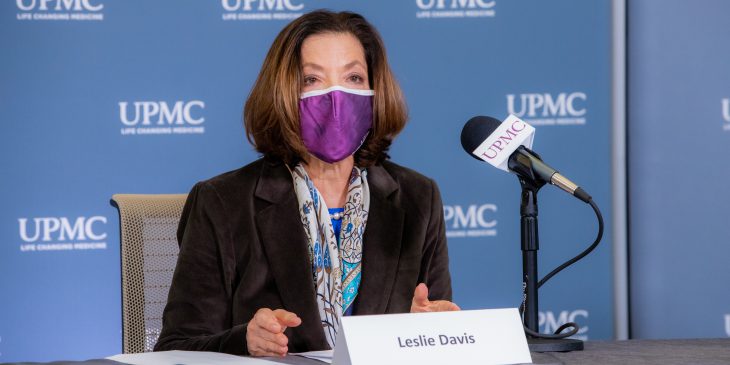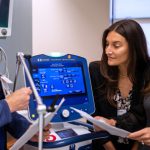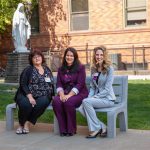UPMC leaders at a press briefing today shared the health system’s plans to continue providing care during the pandemic and for the distribution, storage and administration of vaccines.
Leslie Davis, executive vice president and chief operating officer of UPMC’s Health Services Division, outlined the measures the health system has taken thus far to meet the increased patient needs caused by COVID-19. Additional nurses have been brought in to provide staffing support, new ICUs have been opened, quarantine periods for staff have been shortened based on scientific guidance and telemedicine continues to expand, reaching a record 1 million ambulatory visits so far this year.
According to Dr. Graham Snyder, UPMC’s medical director of infection prevention and hospital epidemiology, UPMC hospitals are awaiting thousands of doses of both the Pfizer and Moderna vaccines this week, with more to come. While the general public will not be able to receive vaccinations in the initial phase, UPMC is optimistic that it will be able to vaccinate its frontline health care workers who wish to receive it by the end of January.
The vaccination program for UPMC’s health care workers is voluntary, and vaccinations will be made available to the public as soon as possible.
“Not only is the speed and breadth of vaccine development – including new vaccine technologies – unprecedented, so is this situation where vaccine is being distributed before regulatory review and research study publication,” said Snyder. “Therefore, before we give the first dose of vaccine, we will await Food and Drug Administration review and issuing of emergency use authorizations. Until we are satisfied that the vaccine is safe and appropriate for the people we plan to offer it to, we will not be injecting it into anyone’s arms. Speed is important, but so is safety.”
Dr. Donald Yealy, UPMC’s senior medical director and chair of emergency medicine, highlighted the ongoing importance of pursuing the development and use of therapies like monoclonal antibodies. UPMC recently received an allocation of two different antibody therapies, and it will continue to develop its own.
“These antibodies hold the promise of being a ‘curative’ for those who are COVID-19-positive,” said Yealy. “Unlike vaccines, which are a ‘preventive,’ they don’t require the patient to mount an immune response to be effective.”
Yealy encouraged the community to continue practicing the public health measures that are known to be effective against preventing the spread of COVID-19, including masking, physical distancing and handwashing, and also reminded people to seek the medical care they need. “Those in need of medical attention should not delay preventive, scheduled or emergency care,” said Yealy.
“UPMC’s health care workers – and health care workers everywhere – are essential. It is because of our 92,000 employees and their dedication to caring for our friends, neighbors and family that UPMC is so confident in our ability to continue providing for the medical needs of our communities,” said Davis. “To our devoted and resilient workforce: We thank you.”









